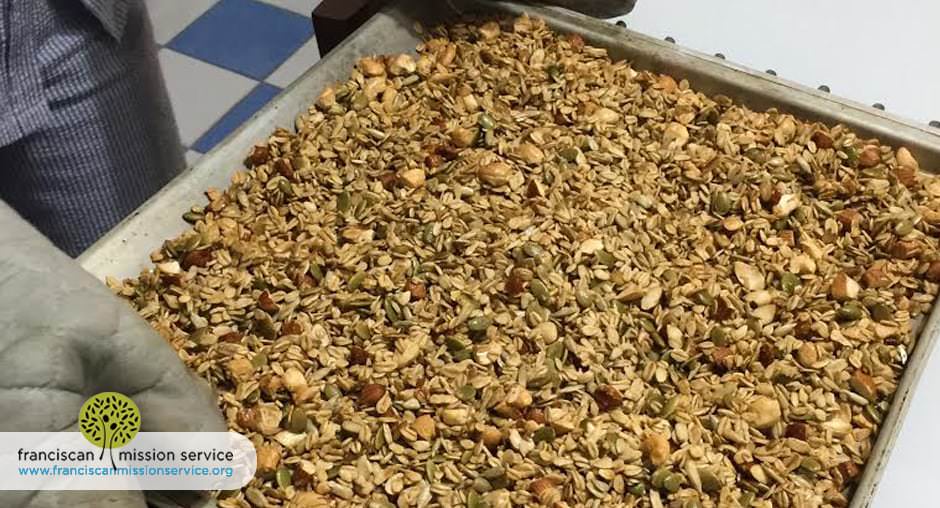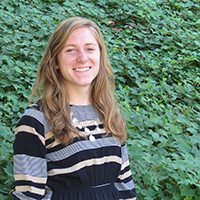Come to the Table: Kinship

Editor’s note: Missioner Maggie Van Roekel continues a three-part blog series on how kitchens and cooking have become important to her on mission. In part three, Maggie shares her relationship with her host mom, Anita, and how they first bonded over baked goods.
There have been many times during my lifetime where a kitchen has brought to light the gift of kinship. Being invited into someone’s kitchen, or inviting someone to cook with me has kindled many friendships. I’ve found that there is something so calming about cooking or baking which allows me to open up to the kind of vulnerability that provides the foundation for kinship.
During mission, there have been several instances where service and kinship have been displayed. From cooking with students for a community meal in Carmen Pampa, to cooking with coworkers and friends in our own kitchen, I have been blessed in the sharing of meals.
An example that really stands out to me is how important cooking together has been in my relationship with my host mom, Anita.
When I first came to spend six weeks living with Anita, I didn’t have a confident grasp on the Spanish language. Many of the words I knew revolved around basic conversation or “barn vocabulary,” as I had spent a lot of time in the pig barns at my first ministry in Carmen Pampa, learning words like “bucket,” “piglet,” and “hose” (which, surprisingly, are not super helpful in everyday conversation).
While my host mom loves a good chat, I found myself with very few words to put together in order to contribute to conversation. However, something I quickly put together is that Anita is a great cook. I also learned that we share a love for baking.
One day during lunch, I decided to ask her for her granola recipe, a favorite breakfast of mine while living in her home. Almost immediately, she jumped up and pulled out a big, red cookbook filled with recipes scrawled on yellow paper. She quickly began rifling through the stack and found the recipe.
“Listo, cocinaremos.”
We began cooking, and she walked me through the recipe, showing me, patiently and clearly, what different phrases meant. In a couple of hours, we had finished the granola, but we weren’t finished in the kitchen because Anita then asked me if I had any favorite recipes. I shared with her the recipe for cinnamon rolls, which we then baked together.
One thing led to another, and by the time my host sister arrived home at 8 o’clock, there were enough baked goods on the table to make her gasp. After the cinnamon rolls, we had continued on to bake two different types of cookies and still had a pan of bread in the oven.
We spent many afternoons after this one in the kitchen baking together, giving and receiving new recipes. As I gained more vocabulary, we were able to have more conversations and she was able to spend less time teaching me cooking phrases and more time telling stories.
Now that I am living in Cochabamba, I have had the opportunity to reconnect frequently with Anita. The kinship I have with her has continued both in and outside of the kitchen.
Our relationship of learning, teaching, and trading recipes in the kitchen led to sharing of stories and lives. Our kinship, which was initially formed by time spent mixing and kneading, is now something I cherish.
Reflection question: How do you cherish relationships where you share something special in common?
Tagged in:

